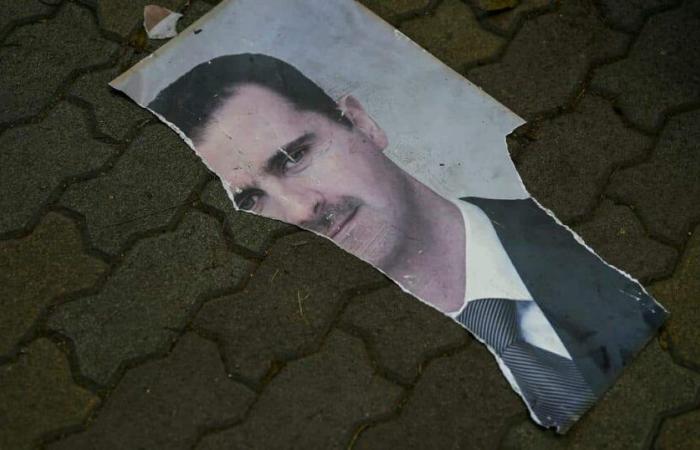During his first speech since the collapse of his government and his exile in Russia, the former Syrian president declared this Monday, December 16, that he had “fulfilled his role” against “terrorist forces” until the end.
Former Syrian President Bashar El-Assad chose to speak out for the first time since his overthrow on December 8, through a statement published on December 16 from Moscow on the social networks of the former Syrian presidency. This statement came “after several failed attempts at dissemination in the Arab and international media”, he clarified.
The message, written in Arabic and English, “does not address the reasons for the rapid collapse of the regime’s army, nor the abuses revealed after its fall”, according to the Lebanese site Al-Modon. Rather, it focuses on “the explanation for his hasty flight to Russia without informing the leaders of the regime or those close to him”, as indicated on the channel’s website Syria TVbased in Istanbul.
“Wave of disinformation”
“My exit from Syria was not planned in advance and did not take place in the final moments of the conflict,” unlike the “wave of disinformation and narratives far from reality, intended to present international terrorism as a liberating movement”, writes Bachar El-Assad.
Despite claims from several sources that he fled late in the evening of December 7, Assad maintains that he is “remained in Damascus, filling [son] duty until dawn on Sunday, December 8.”
The “terrorists” in charge
Barely the “terrorist forces” entered the Syrian capital, the ex-president “displaced” to the Russian military base of Hmeimim, located near Latakia on the coast, “to direct military operations”. However, the base was the target of a drone attack. “With no other option to leave the base, Moscow ordered […] an immediate evacuation to Russia on the evening of Sunday December 8″, explains Bachar El-Assad.
“At no time did I consider resigning or seeking asylum, and no such proposal was made by any party. The only option was to continue fighting the terrorist onslaught,” he says. He thus justifies his forced departure, explaining that “when the state comes under the control of terrorism and the opportunity to contribute meaningfully is lost, any leadership role loses its meaning and becomes […] useless. »
World






